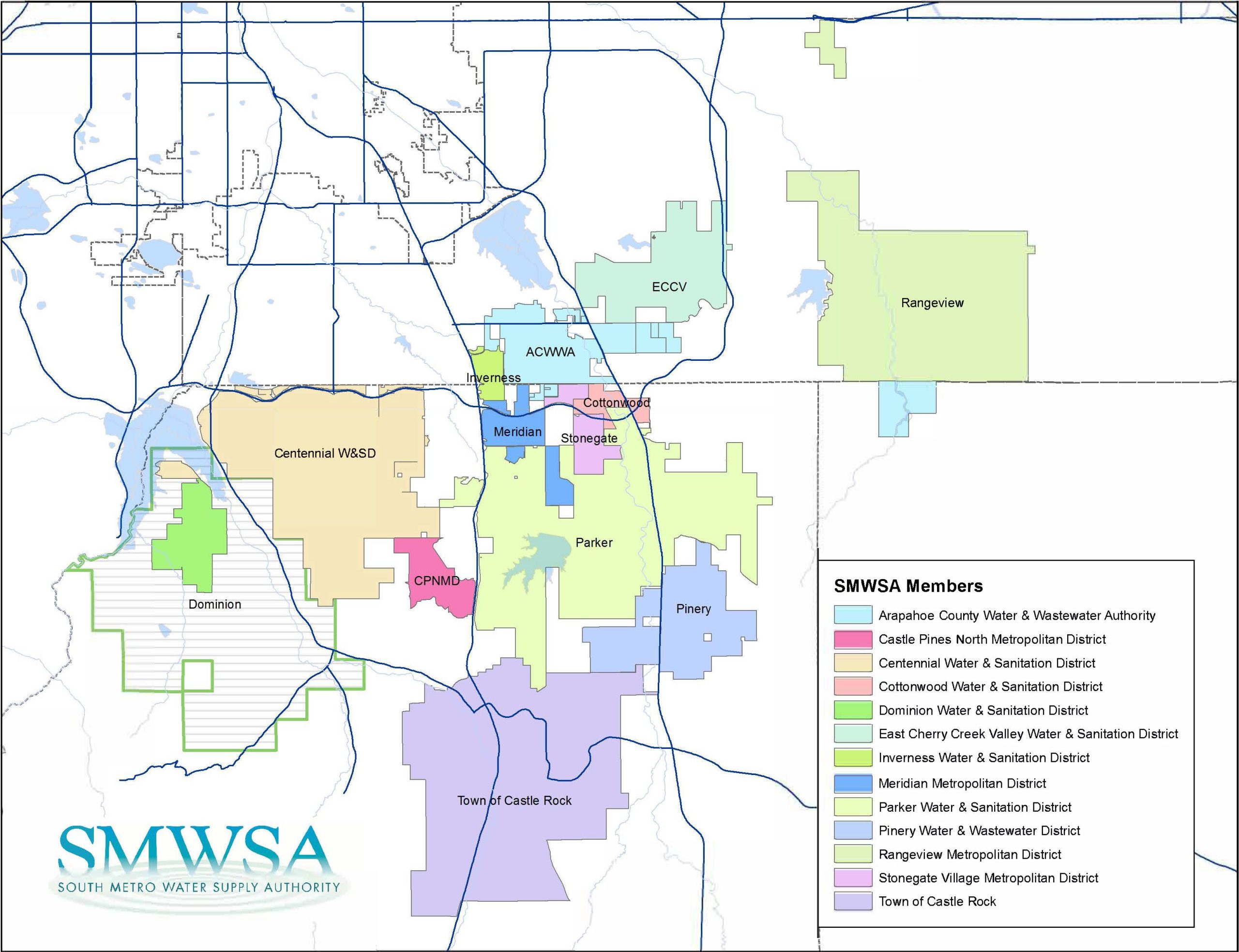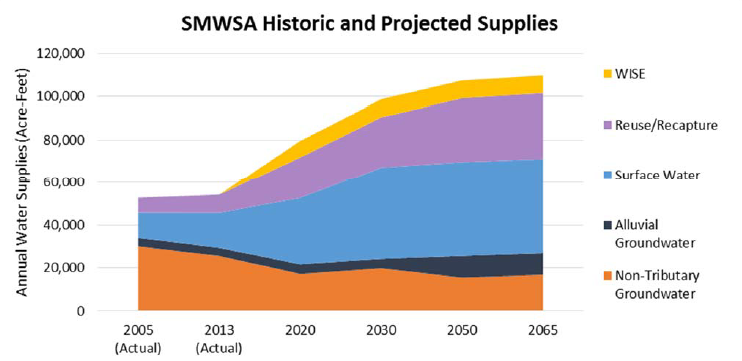A developer behind a controversial San Luis Valley water export plan, who hopes to sell water from the valley to water-short Douglas County and potentially other South Metro Area water users, is vying for a seat on a new water commission the county has established to evaluate future water needs.
Among those who are applying to the seven-member commission, according to Douglas County Commissioner George Teal, is Sean Tonner, a principal with Renewable Water Resources, also known as RWR, the company behind the $400 million San Luis Valley export proposal. Tonner did not respond to a request for comment.
An initial request from RWR last year, asking the county to use federal COVID-relief funding to pay $10 million in upfront legal and engineering costs for the San Luis Valley project, was rejected on a two-to-one vote, with Teal voting to support the expenditure and commissioners Lora Thomas and Abe Laydon rejecting the deal after the county’s staff and attorneys said the funds could not be used for that purpose and that the RWR proposal was too flawed to succeed.
Since then, RWR has continued to demonstrate deep interest in the county’s water future, with principal John Kim winning a seat on the Roxborough Water and Sanitation District Board last year, and other RWR principals donating more than $20,000 to candidates seeking seats on the Parker Water and Sanitation District Board.
Teal said the commission was created in response to a recent community survey in which 70% of residents said they thought the county should be involved in water issues. Right now, the county does not actually own or supply water, relying on several independent water districts to serve residents. The county’s largest water suppliers are Centennial Water and Sanitation District, which serves Highlands Ranch, Parker Water and Sanitation District, and the Town of Castle Rock.
Many of these districts are also members of the South Metro Water Supply Authority, which plans for and helps deliver recycled water and additional water storage and infrastructure to the area.

According to South Metro’s Master Plan, more water will be needed by the region over the next 50 years, with roughly 30,000 acre-feet of renewable water required to handle growth and reduce the region’s dependence on aquifers, whose supplies are non-renewable.
But Douglas County water districts and utilities have said they are already able to meet existing and future water needs through a combination of conservation, recycling and reusing their supplies, and participating in other water supply projects already underway, such as the Platte Valley Water Partnership.
Mark Marlowe, director of Castle Rock Water, said Castle Rock has no need for and no interest in the San Luis Valley export proposal.
“It’s important to understand that at least most, if not all of the water providers, and Castle Rock Water in particular, have plans in place to meet the needs of our service area and the growth that we expect,” Marlowe said. “The other water providers are also working together on long-term water planning for the area.”

The new water commission is causing alarm in some areas of Douglas County, who fear RWR is using its political muscle to win acceptance of the San Luis Valley export proposal.
Early on high-profile politicians, such as Colorado Attorney General Phil Weiser and Gov. Jared Polis, came out against it.
And opposition in the San Luis Valley is also widespread. Counties in the valley have banded together to create a new authority that would have to review any export proposals.
And the Rio Grande Water Conservation District has said repeatedly that no water should be taken from the valley because it is already facing major water shortages due to the ongoing drought and over-pumping of its aquifers by growers. The valley faces a looming well shutdown if it can’t reduce its water use enough to bring its fragile water system back into balance.
Last year, after Douglas County commissioners rejected the funding request, RWR said it would continue to work with the county to see if its objections could be overcome. It has also maintained that the agricultural water in the San Luis Valley — the water that it would export — would be pulled from a portion of the valley’s aquifer system that is renewable, minimizing any damage that might occur from the project, and that even though farmlands would be dried up when the water is exported, the valley’s water situation would benefit from a reduction in agricultural water use.
Parker Water and Sanitation District Manager Ron Redd said he’s skeptical about RWR’s plans and the new commission.
“If [the commission’s role] is to direct or to get involved in our business and to tell us what we can do, I would be opposed to that. Governments are customers who the districts serve. When it becomes more political, the focus becomes more narrow. I think it muddies the water,” Redd said.
Though the county has declined to make the list of water commission applicants public, Redd confirmed that two members of the Parker board, Merlin Klotz and Bill Wasserman, have also applied.
County Commissioner Lora Thomas voted against the commission’s creation, and she is adamant that it is not needed.
“I think it is absolutely unnecessary. It’s a waste of time, money and effort.”
Teal said he hopes to have the commission up and running quickly. The deadline to apply for a seat is Aug. 11.
Fresh Water News is an independent, nonpartisan news initiative of Water Education Colorado. WEco is funded by multiple donors. Our editorial policy and donor list can be viewed at wateredco.org.


 Print
Print